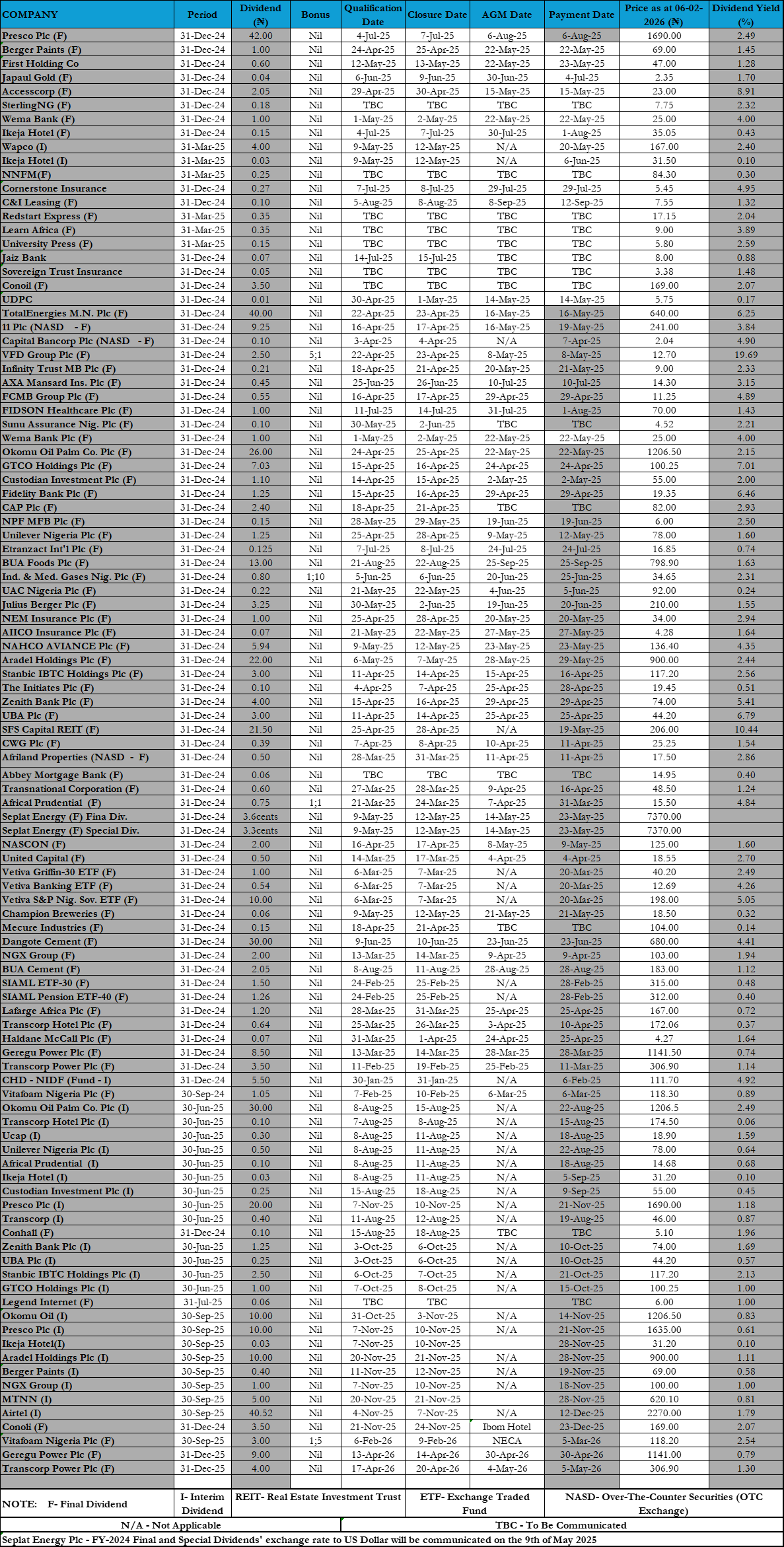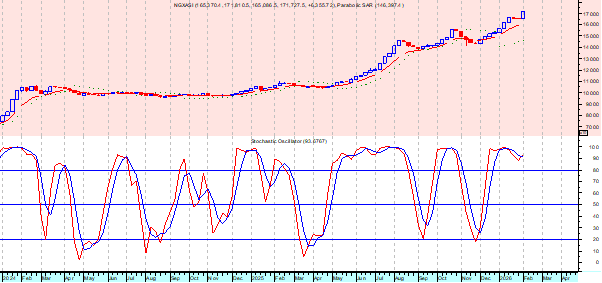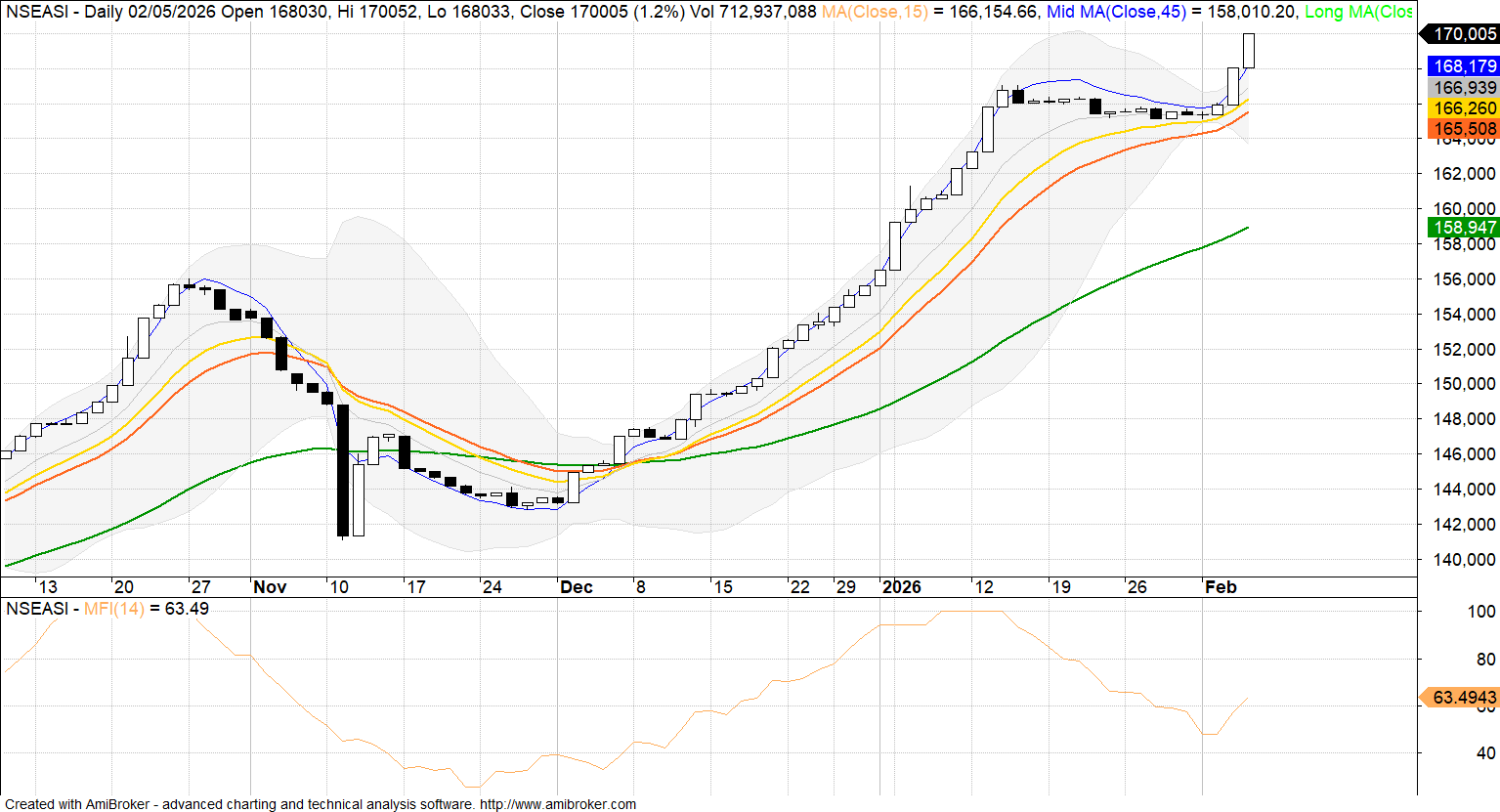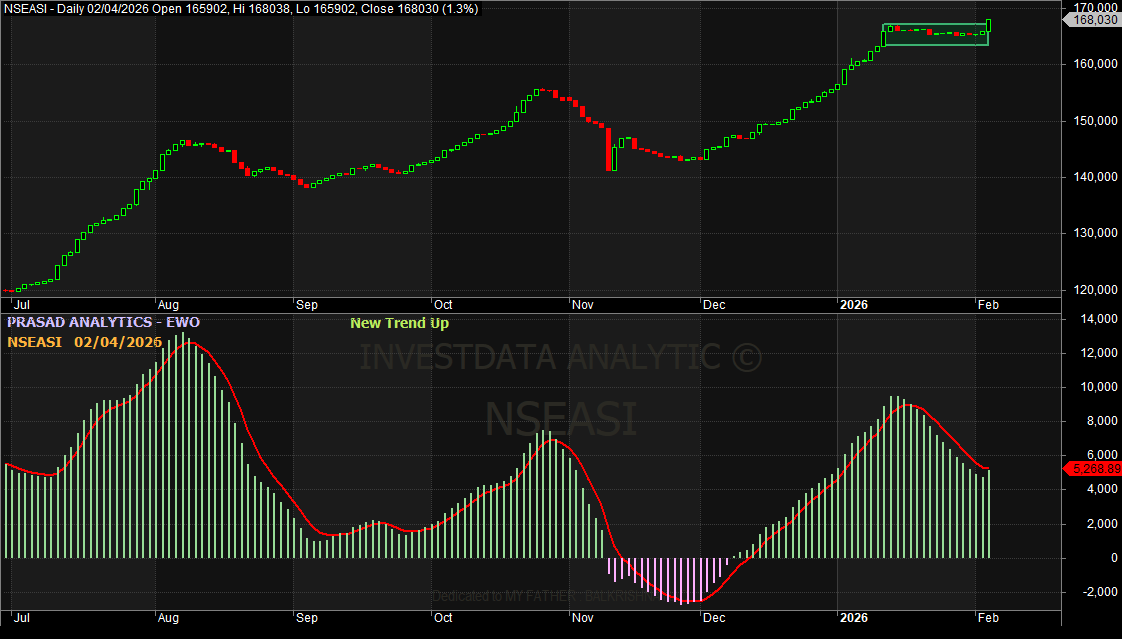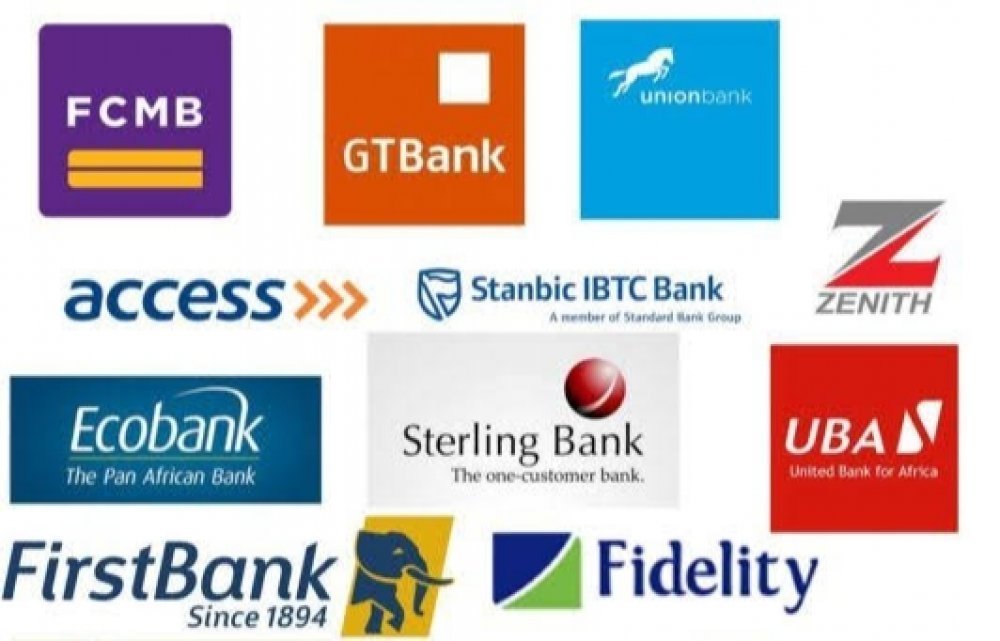
Market Update – August 25
Monday’s trading session on the Nigerian Exchange closed on yet another positive note, with the benchmark NGX All-Share Index (ASI) advancing 31 basis points, thereby reversing some of the recent profit-taking a situation that sustained investor sentiment across key sectors of the market. The renewed uptrend was driven largely by demand in the banking and insurance sectors, added to strong contributions from a few consumer and industrial goods stocks.
At the close of trading also, market capitalization gained N40bn, sustaining the market’s year-to-date positive performance, which now stands at over 40%.
Market participants continued to show mixed emotions, balancing between profit booking on some tickers and fresh positioning in fundamentally strong counters, especially within the insurance space where recapitalization is driving renewed interest. The session’s gains could have been stronger but for the continued selling pressure in the oil and gas sector, particularly ARADEL, which offset part of the positive momentum.
Despite the upturn, overall market activity weakened, as volume and value of transactions slowed significantly compared to the previous session. This reflects cautious trading ahead of interim dividend declarations, macroeconomic data releases, and global developments that continue to shape investor sentiment in the local bourse.
Sectoral Performance
The banking index rebounded strongly, gaining 112bps, following renewed demand in STANBIC (+532bps), JAIZBANK (+432bps), GTCO (+218bps), STERLINGNG (+199bps), and ACCESSCORP (+167bps). This performance reversed earlier losses in the sector and reaffirmed investor appetite for banking stocks with strong fundamentals and dividend potential.
Similarly, the insurance index sustained its upward trajectory with notable gains in REGALINS (+970bps), VERITASKAP (+960bps), NEM (+883bps), UNIVINSURE (+820bps), and AIICO (+694bps). This surge reflects sustained accumulation in insurance counters, as investors position for long-term value amidst recapitalization activities in the industry.
Other sectors also closed higher, with the consumer goods index inching up by 29bps and the industrial goods index advancing slightly by 2bps. However, the oil & gas index declined by 31bps on the back of profit taking in ARADEL (-173bps).
Market Breadth and Activity
Market breadth closed positive, as more stocks recorded gains compared to losers, reinforcing the day’s bullish sentiment. However, overall market activity remained subdued, with a 23% decline in volume and 56% decline in value traded, as investors exchanged 589m shares worth N11bn.
In terms of activity, GTCO emerged as the most traded stock by value, recording trades worth N2.3bn, while FCMB dominated the volume chart with 105m units exchanged. This shows that institutional and retail players remain active in banking stocks, despite the slowdown in overall transactions.
Technical View
Technically, the market’s candlestick pattern at the close of Monday formed a mild rebound setup in the midst of mixed sentiment. The ASI closed above the T-Line and key moving averages (50-SMA and 50-EMA), signaling underlying strength despite profit-taking activities in select sectors.
Momentum indicators were, however, mixed. The Money Flow Index (MFI) dipped further, reflecting funds leaving the market, while the Relative Strength Index (RSI) remains in the overbought region, slowing down but still pointing to bullish sentiment. This indicates that while investors are cautious, the market still enjoys strong support from bargain hunters.
The volume pattern revealed a decline compared to the previous session, suggesting that smart money is still in play, but at a reduced pace. The market, therefore, sits at a critical level where any further breakout will depend on fresh inflows and positive triggers such as earnings releases, dividend announcements, or macroeconomic data.
The current chart formation signals that a continuation of the uptrend remains likely, but the risk of pullback is still present, given the market’s overbought state. Traders are advised to pay attention to support levels around 144,000bps and resistance at 145,000bps.
Global Oil Market
In the international commodities market, oil prices edged higher on Monday as traders weighed fresh concerns about disruptions to Russian supply against expectations of softer demand later in the year. Brent crude futures rose 40 cents or 0.6% to $68.13 per barrel, while West Texas Intermediate (WTI) gained 46 cents or 0.7% to $64.12 per barrel by mid-day.
The rally was spurred by heightened geopolitical risks, as U.S. President Donald Trump threatened further sanctions on Russia if progress toward a peace settlement in Ukraine is not achieved within two weeks. He also hinted at imposing harsh tariffs on India over its continued purchase of Russian crude, fueling further uncertainty.
Tensions escalated further after Ukraine launched drone attacks that set ablaze Russia’s Ust-Luga fuel export terminal and prolonged a fire at the Novoshakhtinsk refinery, which has been burning for four consecutive days. While U.S. Vice President JD Vance noted over the weekend that Russia had made “significant concessions” toward a negotiated settlement, market participants remain skeptical as peace negotiations appear to be dragging with no clear resolution in sight.
The geopolitical risks, coupled with supply disruptions, are expected to keep oil prices volatile in the near term, with global markets closely monitoring developments in Eastern Europe and the Middle East.
Outlook
The Nigerian market remains at crossroads, balancing between continued bullish momentum and the risk of short-term pullbacks due to profit taking and external headwinds. The mix of positive sentiment in banking and insurance stocks, alongside weaker activity levels, highlights the need for caution.
As such, traders and investors are advised to let their trading plans and investment objectives guide decisions, paying close attention to market structure, price action, and momentum indicators. Pullbacks at this stage will continue to create entry opportunities in value and defensive stocks with strong fundamentals, especially as the market awaits interim dividend announcements and further earnings reports.
With global geopolitical tensions still dictating commodity prices and impacting risk appetite across emerging markets, Nigerian equities are likely to witness continued oscillation. Investors are encouraged to focus on growth and defensive stocks with consistent earnings power, while adopting a disciplined approach with stop-loss strategies to protect capital in the midst of volatility.






